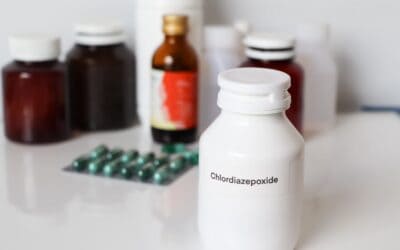Addiction Treatment in Memphis, TN
Addiction Treatment Overview
Addiction is heavily stigmatized in society, making the condition sound like a choice; however, this is a complete misconception. Furthermore, addiction is a crippling and exhausting disease that takes its toll not only on the person misusing drugs but on their friends and family as well. Fortunately, addiction treatment in Memphis further helps those in the West Tennessee area find healing from this powerful condition. All in all, we can help them establish sobriety once and for all.
What is Addiction?
Substance use disorder (SUD), also known as addiction, is defined as a complex and chronic brain disease. Moreover, this potentially fatal disorder affects millions of people across the nation. In recent years, more than 23 million of United States adults having struggled with some form of drug misuse. Hence, when most people think of addiction, they think of illicit substances such as heroin or cocaine for example. Despite this, however, many individuals are also addicted to legal drugs such as painkillers, benzodiazepines, and prescription stimulants as well as alcohol.
Risk Factors of Addiction
Addiction is the result of a combination of biological, social, environmental, and behavioral factors. Initially, drug and alcohol use often starts as social or experimental, but can quickly lead to dependence and, eventually, addiction. A variety of risk factors and life experiences can lead to the development of addiction.
These include:
- Genetics. An individual with a family history of drug misuse has an increased chance of developing a substance use disorder.
- Mental Health Disorders. It is not uncommon for a person struggling with addiction to also have a co-occurring mental illness. As a result, individuals might use drugs and alcohol as a way to self-medicate or cope with their mental health conditions.
- Home Environment. Those raised in a chaotic or unhealthy environment often turn to substance misuse as an escape. Additionally, those whose guardians have drugs and alcohol readily available might, in fact, be more apt to develop an addiction.
- Trauma. The emotional damage associated with experiencing some form of abuse or traumatic event puts an individual at risk for addiction.
- Age. Those who begin drinking or using drugs at an early age are more likely to become addicted to substances.
- Peer Influence. Individuals whose friends use drugs often feel pressured to participate.
- Stress. Those who encounter a high level of stress in their lives, whether it be associated with academic, athletic, professional, or social expectations are at risk for using drugs as a way to perform/cope.
Who Does Addiction Affect
Addiction can affect anyone. Moreover, it does not discriminate by age, gender, socioeconomic status, job, or family structure. That being the case, none of us are immune to addiction. As a matter of fact, prolonged misuse of substances creates neural changes in the brain. Therefore, these changes drive compulsive drug-seeking behavior.
While addiction can affect anyone, it affects people in different ways. Hence, this is why it is important that specialized detox and addiction treatment programs are available for specific subsets of the population as well. Thankfully, to support this Detox West Tennessee takes pride in providing inclusive yet specialized detox programs that cater to every individual’s unique needs.
Addiction in Women
Women are reported to be the fastest-growing group of substance misusers in the nation. Moreover, in addition to this finding, prescription drug misuse is 1 of the most common substance-related issues affecting women. In fact, according to the SAMHSA, 8.4 million women in the US aged 18 and over have misused prescription drugs in the past year. Of equal importance, and for the best outcomes, women’s addiction treatment should involve female-specific approaches.
Addiction in Men
Men face specific issues around substance misuse and accessing treatment. Reaching out for help can be difficult for men as they struggle with societal stereotypes of toughness and independence. Thus, alcohol is reported to be one of the most commonly misused substances among men in the US. In addition to alcohol, men also use high levels of cannabis and stimulants. Therefore, male-specific approaches to treatment reduce the prevalence and severity of addiction in men.
Addiction in the LGBT Community
Members of the LGBT community, unfortunately, face a higher risk of substance-related disorders than the general population. As a matter of fact, this marginalized group faces barriers to treatment such as stigma from providers. Additionally, alcohol, cannabis, and methamphetamine misuse are specifically high in this community. Thus, this is why Detox West Tennessee offers detox programs that are customized to tackle addiction in the LGBT community.
Addiction in College Students
College students also face unique challenges around substance use and misuse. There is immense pressure on these young adults to perform well at school. Thus, this pressure can be overwhelming and increase the appeal of using substances.
Addiction in Veterans
PTSD is a common and debilitating mental health condition among veterans. Unfortunately, PTSD further puts veterans at a higher risk of addiction as drug and alcohol misuse is often a way individuals cope with PTSD.
Types of Addiction Treatment in Memphis, TN
Addiction treatment is available in several forms in order to help individuals at every stage of recovery. With this intention, it is important that substance use programs be specialized to fit the needs and circumstances of each individual as this promotes sustainable sobriety. Thus, common types of addiction treatment in Memphis include the following.
Detox Programs
For the majority of people, detox is the first step in addiction treatment. First, this process allows individuals to rid their bodies of all drugs and toxins, prior to entering a drug or alcohol rehab program. To add, Detox West Tennessee offers comprehensive alcohol and drug detox programs that combine medication-assisted treatment and quality care to ensure our patients’ stability and comfort.
Residential and Inpatient Programs
Inpatient rehab is designed for those struggling with severe substance use disorders. Secondly, inpatient rehab is helpful for those with a dual diagnosis as it provides a high-level of support and structure. Individuals live on-site while in this type of programming, which allows them to further establish their sobriety away from the stresses of the outside world.
Outpatient Programs
Outpatient programs are designed as a step down from inpatient or residential rehab. Secondly, they can also benefit those who have a less severe addiction or are unable to commit to a 24/7 program. Typically, those in this type of programming live at home or in a sober living environment. Then, they attend treatment sessions at a facility. Lastly, outpatient treatment is usually offered at 3 care levels.
These include:
- Partial Hospitalization Program (PHP). PHPs take place in a clinical setting and are the most structured form of outpatient treatment. To elaborate further, clients attend treatment 5 days a week for the majority of the day.
- Intensive Outpatient Program (IOP). Clients attend IOP sessions 3 times a week for 3 to 5 hours at a time. Treatment can be held during the day or in the evening.
- Standard Outpatient Program (OP). OPs require attendance once a week and are geared towards preparing individuals to fully integrate back into society.
Transitional Living Homes
Sober living homes or halfway houses serve as a bridge between inpatient treatment and returning to the surrounding world. Luckily, those who need additional support following treatment can greatly benefit from these programs. For one, residents are able to bond with peers, reinforce healthy habits, and, oftentimes, establish employment while in a transitional living environment.
Therapies Used in Addiction Treatment
Therapeutic interventions are successful in helping people identify and address the underlying causes of addiction. Additionally, therapy also helps individuals change harmful behaviors and break negative thinking patterns while adopting healthy coping mechanisms.
Types of therapy used in the treatment of substance use disorder include:
- Individual therapy
- Group therapy
- Family therapy
- Cognitive-behavioral therapy
- Dialectical behavior therapy
- Experiential therapy
- Holistic therapy
- Motivational enhancement therapy
- Eye movement desensitization and reprocessing (EMDR) therapy
- Biofeedback therapy
How Long Does Addiction Treatment In Memphis Lasts
The exact amount of time a person needs to spend in treatment depends on the severity of their addiction. In short, a person should stay in treatment until they have a firm foothold in recovery and feel confident in their sobriety.
The following outlines the average length of addiction treatment:
- Detox: 7 to 14 days
- Primary Treatment: 30, 60, or 90 days
- Sober Living Programs: 6 months to 1 year
Lastly, the longer a person remains in a recovery program, the greater their chance of maintaining sobriety long-term is.
How Addiction Treatment is Paid For
A common concern when entering a detox or rehab program is the cost. Under the Affordable Care Act, all health insurance sold on Health Insurance Exchanges or provided by Medicaid must offer some form of coverage for substance use treatment. This means that the majority of insured individuals are eligible for full or partial coverage in relation to detox and other addiction treatment services.
For those that do not have health insurance, there are options. Most facilities, including Detox West Tennessee, are happy to help you set up a payment plan. Additionally, there are scholarships and grants you can apply for. Further, you can also ask your employer and/or friends and family if they can help you with the cost of addiction treatment.
Addiction Treatment in Memphis, TN
The road to recovery starts with getting sober. Thus, Detox West Tennessee provides medically-supervised detox in the Memphis, Tennessee area. Our detox program allows you to start a formal addiction treatment program with a healthy body and clear mind. Let us help you establish a solid foundation for lasting recovery by giving us a call or visiting our admissions page today.
Program Links
Related Articles
How Does Meth Abuse Impact the Brain?
The human brain consists of a complex balance of neurotransmitters that control essential functions such as movement,...
Is Alcohol the Most Dangerous Drug?
Many people believe heroin or crystal meth are the most dangerous drugs to use. Fentanyl, heroin, crystal meth, and...
The Effects of Amphetamine Abuse
A disturbing trend in prescription drug abuse connects with the rising number of healthcare providers relying on...
Signs of Librium Addiction and Withdrawal
Librium is the well-known brand name for the generic drug chlordiazepoxide. Librium is a benzodiazepine class of drugs...
How Long Do Drug Withdrawals Last?
The length of drug withdrawals is different for every individual based on the type of substance, physical condition of...
Visit us at
370 North Cumberland St.
Jackson Tennessee, 38301
Have a Question? Call us
Hours
- Open 24 hours







